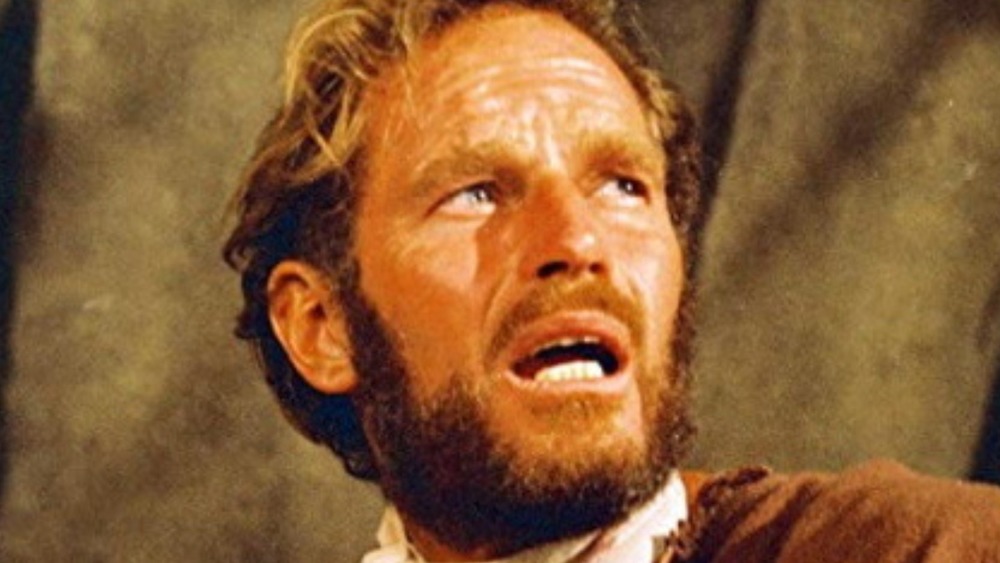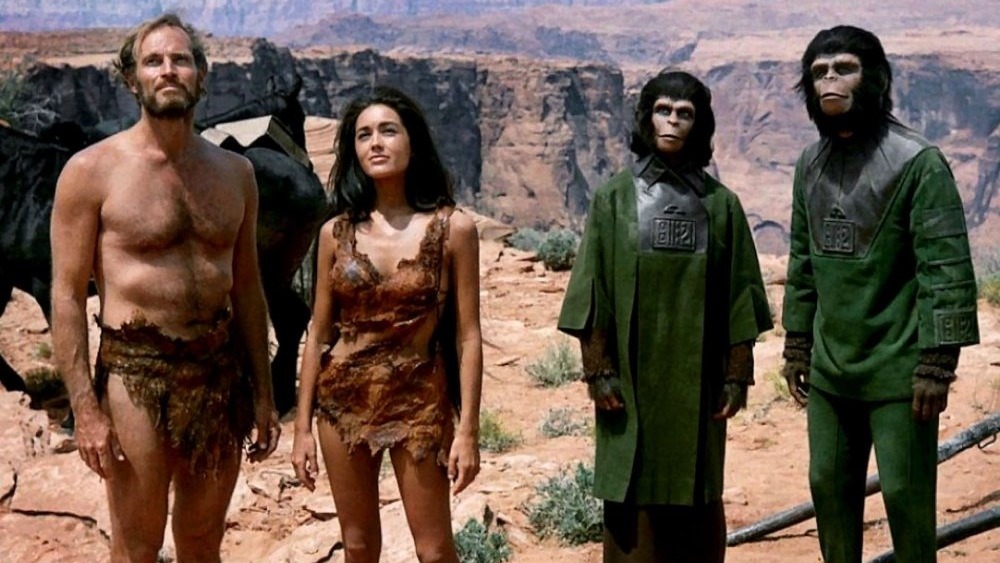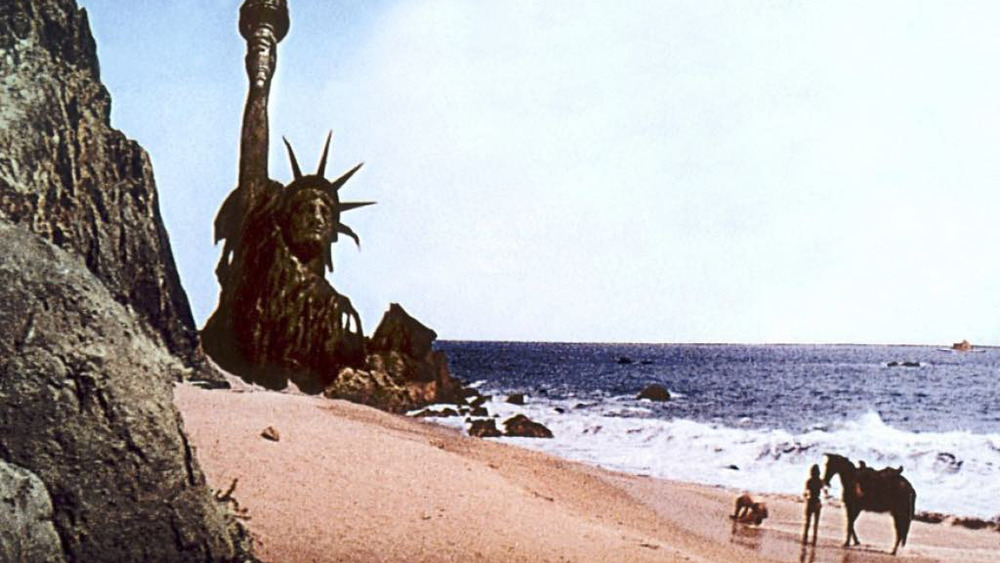The Ending Of Planet Of The Apes Finally Explained
Franklin J. Schaffner's 1968 version of the Planet of the Apes is loosely based on the original 1963 novel called La Planéte des Singes by Pierre Boulle. The film stars Charlton Heston, Roddy McDowell, Kim Hunter, Maurice Evans, James Whitmore, James Daly, and Linda Harrison. Planet of the Apes took the adventure and sci-fi genres by storm and has high ratings from critics and audiences alike. The movie's script was written and re-written many times, but the final version was a success, grossing over $33 million worldwide.
Schaffner centers the story around several astronauts from 1972 who crash-land on an "unknown planet" that is inhabited by a species of evolved apes in the year 3978. The apes can talk, walk, and make decisions of their own and don't prefer to coexist with the human race. While primitive species are often kept in cages and experimented on where the humans are from, things are a bit different on this planet. Instead, people are kept in cages while the so-called primitive apes rule the area. There have been a lot of reboots throughout this franchise, but without a doubt, the 1968 Apes version has gone down in history as iconic. Still, there might be some unanswered questions about the ending and what it all really means.
The apocalypse and a massive revelation
At the end of the movie, George Taylor (Heston) finds out that he's been on planet Earth the entire movie. He comes across a major telltale sign that he is, in fact, on his own planet when he sees the Statue of Liberty in shambles, indicating that Earth has somehow gone into an apocalyptic dive. As soon as Taylor thinks he's made it through his massive ordeal, that he's conquered and survived it all, he realizes that he's basically back to square one.
Even though Taylor was warned by Dr. Zaius (Maurice Evans) of what he might find beyond the human-sourced trinkets in the cave, it's still another thing to see it with his very own eyes. The sheer shock Taylor emotes with his iconic line, "You maniacs! You blew it up! Damn you! God damn you all to hell!" means much more beneath the surface. The realization that mankind might not have it figured out after all is so prevalent and "in your face" in this movie that it's hard to ignore or not realize what's happening. At the same time, Schaffner tells the story with such delicate measure that viewers might not realize what's going on until they see the end.
Subtle messages come out to play
Dr. Zaius knew of a human civilization that existed before his kind, but he knew that sometimes, things are better off left unsaid ... or buried in a cave. When the iconic ending ensued, it was obvious Taylor was disgusted by the human race that quite literally imploded upon themselves.
Nuclear war is what happened on Earth, and the message that's attached to this realization is loud, clear, and relevant to what was going on in society in the 1960s. There are many politically driven messages pushed throughout Planet of the Apes, but without a doubt, the most powerful comes with the final scene that shows Taylor and Nova (Harrison) being allowed to leave to find their "own destiny," as Dr. Zaius puts it.
Schaffner did a really good job of leaving it up to viewers to decide who the actual protagonist really is. Taylor is obviously "meant" to be the hero, and the guy who ultimately comes out on top, but his ideologies on what's right and what's wrong are tested, paired with how humankind destroyed itself without any help from another species.


